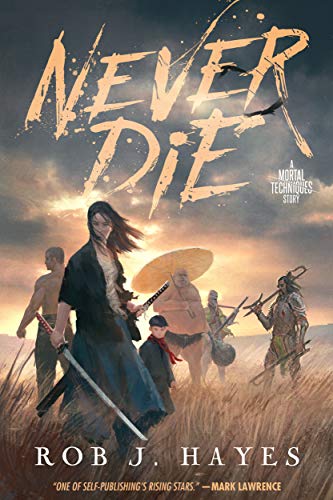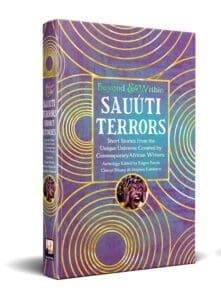
Synopsis
Samurai, shinigami, vengeful spirits, and an impossible quest.
The Emperor of Ten Kings has plunged Hosa into war, and the gods are angry.
When the god of death gives Ein a mission to kill the immortal emperor, he knows he can’t do it alone. He needs allies, heroes who will fight for him. How else can an eight-year-old boy hope to do the impossible?
Whispering Blade, Iron Gut Chen, the Century Blade, and Flaming Fist. These are all names of legend. And the god of death has given Ein a way to bind them to his cause. There is only one catch. In order to serve him, they must first die.
Review
“Some fight for honour, and some for reward.
Some for glory, and others for a cause.
Some fight for freedom, from tyranny and hate.
And some fight for love, not for a person but a name.
With death as their guide, their companion and goal.
They cross all Hosa, spirit, flesh, and soul.
Hounded by demons, from the pages of lore.
What starts with a whisper, must end with a roar.”
Never Die combines the best parts of Wuxia cinema and Shōnen anime with the golden era of role-playing games and a splash of Dungeons & Dragons. The plot revolves around a young boy and the heroes of legend that are bound to serve him. Ein is a strange boy and the mystery surrounding him and how he came to get his power is fun and will keep you guessing and, likely, shivering, as there are several scenes in which he acts in very unsettling ways.
At first I thought that the plot itself was a little generic, a Journey to the West style quest story. However, there are several twists that slowly unfold throughout the story that paint it in an overall different light. It was fun to see the hero get killed in the prologue, only to be brought back to a state of being “mostly alive” by a ten year old boy. The worldbuilding that Hayes exhibits is especially interesting as well, with an Asian inspired setting that seems to draw more from pop culture than real history, though there are plenty of references to the latter (see: a character named Art of War and the mention of a book entitled The Romance of the Three Ages.)
“It takes a lifetime of evil to be a villain, and only one moment of good to be a hero.”
The characters all feel distinct from each other and some of the banter between them is often laugh out loud hilarious. Several times I actually made my wife stop what she was doing just so I could read her something that was particularly funny. Zhihao is a standout for me and his evolving dynamic with Chen is one of the best things I’ve read in recent memory. They all have their personal histories and, whether it be an especially heroic battle or just name dropping another legendary hero they knew, they will reference it often.
Hayes does a good job with the combat and we move through several different-sized engagements, from one-on-one duels to a full-scale military siege. The action is riveting and evocative of the films and anime which obviously inspired it. I loved how each character employed their own personal style of fighting and connecting that with their names was a fun way to make each character distinct and memorable. The only odd duck out here is Roi Astara, the sniper rifle toting leper. While I liked his character overall, it felt weird for him to have a modern weapon in an ancient-Chinese world. A small gripe, indeed.
“Sometimes the few need to stand against the many, so all can see what is right,” Zhihao said, then coughed into his hand. “So the monks used to say. I think it was written on a wall somewhere.”
While the first bit is by no means bad, I feel that Never Die really shines in its last twenty-five or so percent. The pace slowly builds over the book and culminates in a break-neck Iaijutsu slice to the face. Seriously, the last seventy-five pages are wonderful and leave readers with one last twist reveal to make sure that we know that this is Rob J. Hayes’ house. Read Never Die. It’s good.
** As an aside, I want to mention that when reading the paperback edition of this book, the synopsis on the back ruins some of Ein’s mystique. I’m not sure if it has been changed since I purchased the book, but I would err on the side of caution and avoid reading that bit. **









Leave a Reply